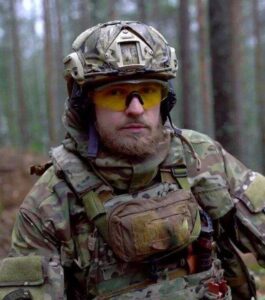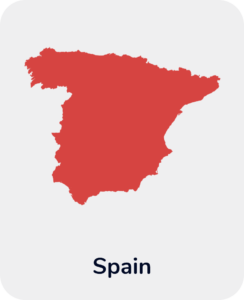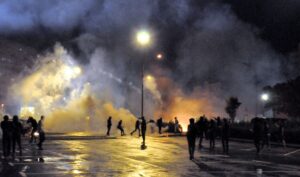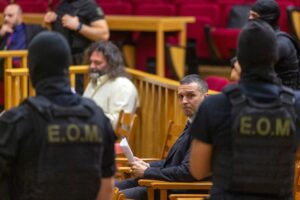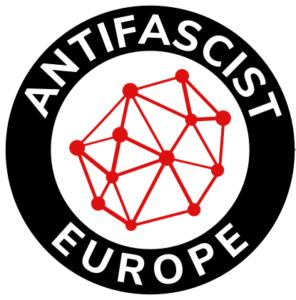Original text by Dmitriy Vachedin, posted on Meduza on 13 March
One of the Kremlin’s declared goals in attacking Ukraine is the “denazification” of that country. According to the official version, the Ukrainian authorities have been under the influence of neo-Nazis for the past few years. Meanwhile, since the annexation of Crimea, the Moscow government has had no better friends in Europe than the far-right parties of Germany, France, Italy, and Austria. Functionaries of these parties who came to the elections in Crimea and Donbas, demanded the lifting of sanctions against Russia, befriended the head of Chechnya Ramzan Kadyrov, the ideologist of Russian neo-imperialism Alexander Dugin, the Orthodox businessman Konstantin Malofeev, and, judging by leaks in the media, were generously rewarded by the Kremlin. What’s more, their position on many issues resembled the ideas of the Ukrainian extreme right (which, incidentally, did not make it into the parliament at all in the last election): defence of “traditional values,” rejection of migrants, and, to some extent, reconsidering the social consensus around World War II. Meduza describes the main friends of the Kremlin in Europe.
Alternative for Germany (AfD, Germany)
The AfD emerged in 2013 as an association of Eurosceptics who advocated abandoning the euro, reclaiming the German mark, and generally turning the German economy away from helping its EU neighbours and towards solving its own problems. But by 2015, when the migration crisis erupted in Europe and Angela Merkel opened Germany’s borders to refugees from the Middle East, AfD shifted sharply to the right. It became known as the “One Topic Party,” demanding first and foremost the closure of borders and an end to the “Islamization” of Germany. At the same time, the party defends so-called “traditional values” and in particular opposes the legalization of gay marriage. Finally, the leaders of the “Alternative” also spoke out on topics from Germany’s past: for example, party founder Alexander Gauland called the Nazi regime “mere bird droppings” (nur ein Vogelschiss) within the country’s millennial history.
The AfD was particularly popular in the east of the country, in the territory of the former socialist GDR. There it achieved sensational results: 27.5% in the regional elections in Saxony in 2019, for example. In the western lands in recent years, the party usually did not reach even 10%. But without the votes of the more populous West, it could not have succeeded in the general federal elections.
Why are they called far-right?
The links between the AfD and neo-Nazis are one of the most discussed topics in German politics in recent years. In short, these links do exist. In the party structures of the AfD, especially in the east of the country, there are many people with backgrounds in the radical right, if not active members. In early March, a court in Cologne allowed the German intelligence services to maintain special surveillance over the party, given their suspicions that it might engage in “extremist activity”. In Germany, the latter refers to a fundamental denial of the democratic order of society, which is enshrined in the country’s Basic Law. When several representatives of the party applied to two courts for a ban on publicly calling them “neo-Nazis,” their claims were denied. That means in fact that the court officially allowed this definition.
How are they connected to the Kremlin?
The connections between Alternative for Germany and Russia are so obvious that if you have seen news reports in recent years about “German deputies going to Crimea” there is close to a one hundred per cent chance that the representatives concerned were AfD members. In 2018 eight Bundestag deputies from this party travelled to Crimea as observers in the presidential election, a trip paid for by Moscow. This despite the fact that not a single European country, Germany included, has recognized the peninsula’s annexation to Russia.
In 2019 a Dossier Center investigation appeared including excerpts from an analytical memo from Russian official correspondence. It was about AfD functionary Markus Frohnmaier, whom the memo proposed supporting in the 2017 Bundestag elections so that the German parliament would include “its own, absolutely controllable deputy.” Markus Frohnmaier, who is married to a Russian woman, was elected to parliament not only in fall 2017 but also in fall 2021, two years after the Dossier Center’s publication. What’s more, he is now not just an MP, but a party spokesman. And one of Frohnmaier’s former aides in the Bundestag, Manuel Ochsenreiter, was suspected of organizing the arson of a Hungarian cultural centre in Uzhgorod, Ukraine (allegedly to turn the local Hungarian minority against the Ukrainian right-wingers, who were supposed to be blamed for the crime). Ochsenreiter fled to Moscow, where he died of the consequences of a heart attack in the summer of 2021.
What does the AfD say about the war?
The current leaders of the party, Alice Weidel and Tino Hrupalla, said of Russia’s attack on Ukraine that it “cannot be justified by anything”. At the same time, Hrupalla demands that Germany remain neutral and not take the Ukrainian side. “Russia is not our enemy. I would like the chancellor to take a neutral position and seek dialogue with all parties to the conflict,” he said later. Meanwhile, the AfD faction in the parliament of the federal state of Mecklenburg-Vorpommern refused to call the armed conflict a “war,” insisting on the designation of “conflict”. Frohnmaier, on the other hand, publishes slogans like “Ukraine won’t fit into the European Union” on his Facebook page.
National Front (France)
The National Front is one of the oldest and most successful national-patriotic parties in modern Europe. Jean-Marie Le Pen founded the party in 1972. By that time, he was famous for taking a leave of absence to fight in Algeria when he was already an MP. Over the decades, the National Front has become a model for almost all the European New Right, combining Euroscepticism and Islamophobia in its programs. But at a certain point, Le Pen’s overtly anti-Semitic remarks became a problem for the party, which wanted to get rid of its radical reputation. So in 2011, his daughter Marine took over the leadership of the party.
Why are they called far-right?
In a sense, the party has inherited this designation from its past. While in 1995 Jean-Marie Le Pen demanded the deportation of three million non-Europeans from France, now the party has become more moderate – they only propose deporting illegal immigrants. New migration is to be considerably restricted. Ten years ago, the National Front called for an exit from the European Union, the eurozone and NATO, but now the party has softened these demands. Political scientists usually say that Marine Le Pen managed to move the party “into the twenty-first century”. However, scholars are still debating whether this party should be simply called a populist party or whether it should be defined as a right-wing radical and extremist party.
How are they connected to the Kremlin?
Unlike Alternative for Germany, which has ties to the Kremlin that can only be judged by indirect evidence, it is known that in September 2014 the National Front took out a loan of about 9.4 million euros from the First Russian-Czech Bank. The party is associated with the structures of oligarch Gennady Timchenko, who is close to Putin.
Apparently, two people were responsible for contact between government circles in Moscow and the French nationalists – the businessman and lobbyist Jean-Luc Schaffhauser, who helped French companies to build a business in Russia, and Alexander Babakov, a businessman, politician and Zakhar Prilepin’s deputy in the “Za Rodinu!” It was Schaffhauser who brokered the loan, for which he received at least 100,000 euros as a commission.
The BBC, citing, among other things, leaks from the correspondence of Kremlin officials, believes that the loan could have been a reward to Le Pen for the party’s stance on Crimea. The National Front has consistently advocated recognition of Crimea as Russian, and Schaffhauser himself even travelled to Donetsk several times, including as an “observer” in the 2014 elections for the head of the self-proclaimed Donetsk People’s Republic. Later, when he became a member of the European Parliament, he voted, among other things, against the European integration of the former Soviet republics. As for Babakov (who has been under Western sanctions since 2014), Alexei Navalny’s FBK discovered in 2013 that he had an undeclared estate in France and an apartment 650 meters from the Eiffel Tower.
What does the National Front say about the war?
After the Russian invasion of Ukraine, Marine Le Pen said that Vladimir Putin is not the same as he was five years ago, and now he is making decisions with which she cannot agree. However, Russia remains a European country with which dialogue must take place, and simply banning Russian gas and oil means punishing the French themselves.
Lega Nord (Italy)
Founded in 1989, for many years the party advocated the separation of the “industrious” northern regions of Italy (which are the richest and most industrialized) from the “lazy southerners”. By the 2010s, it had transformed itself into a nationwide ultra-conservative force and in its campaign materials, it shortened its name simply to the League. Moreover, unlike its French and German associates, this party was able to enter the ruling coalition: party leader Matteo Salvini was Minister of the Interior and Deputy Prime Minister from 2018–2019.
Why are they called far-right?
Like the German AfD or the French National Front, the main ideological platform remains a combination of patriotism, Euroscepticism, and anti-Islamism. However, while the National Front under Marine Le Pen moved toward the political centre, Lega Nord, on the contrary, discovered a new voting base on the extreme right-wing. In particular, Italian journalist Giovanni Savino told Meduza, Salvini repeatedly refers to “conspiracy theories”. For example, that the influx of migrants into Europe is part of the so-called “Kalergi plan” to replace white Europeans, or that American philanthropist and millionaire George Soros is organizing the arrival of migrants from the Middle East and Africa.
How are they connected to the Kremlin?
In 2019, American media outlet Buzzfeed published a transcript of a conversation between three representatives of the “Lega Nord” and three unnamed Russian politicians at the Metropol Hotel in Moscow. Gianluca Savoini, an associate of Salvini (according to journalist Savino, he is known in Italy for having a portrait of Adolf Hitler hanging above his desk) said at this meeting that the new Europe they are going to build must be “closer to Russia”, because only in this way will it be able to obtain true sovereignty.
The Italians at the meeting at the Metropol promised to create a pro-Russian alliance of the “National Front”, the “Alternative for Germany” and the League, which, among other things, would solve the problem of sanctions. In response, Russian interlocutors offered that the Italians could be the beneficiaries of a lucrative deal under which Italy would buy a billion and a half euros worth of Russian oil – with about 65 million euros of this money going through intermediaries and into the party’s accounts.
Although there was no other evidence of this deal’s existence, Buzzfeed considers this tape to be a real demonstration of “exactly how Russia uses business to cover up an outright exchange of money for power”.
Salvini himself – disinterestedly or not – has supported Russian foreign policy for years. In 2014, he visited Crimea and appeared in public (particularly at a meeting of the European Parliament) wearing a T-shirt calling for the lifting of sanctions against Russia.
What does the Lega Nord say about the war?
Unlike Marine Le Pen, who is more focused on domestic politics, these days through his Twitter Matteo Salvini actively calls for peace in Ukraine, which he recognizes as “under attack”. On February 24, the League condemned the Russian invasion (“no buts” the statement said), on the same day Salvini brought flowers to the Ukrainian embassy in Rome. Salvini refrained from openly criticizing Putin, but the abundance of photos of Ukrainian soldiers on his Twitter feed is quite telling.
Freedom Party of Austria (FPÖ)
Founded shortly after World War II, the party was controlled until the 1990s by people who made little or no secret of their adherence to Nazism, and its governing bodies consisted of former Wehrmacht soldiers and SS officers. In 2000, the Freedom Party achieved the greatest success in its history when, under the charismatic leader Jörg Haider, it finished third in the parliamentary elections and entered the governing coalition. But a couple of years later, the party split and underwent a long and painful transformation before repeating the same success and rejoining the government in 2017.
Why are they called far-right?
The party officially professes moderate Euroscepticism (it does not call for leaving the European Union), patriotism (considering Austrians and Germans as one people), and anti-Islamism. However, there are so many examples of party members (including the top leadership) making neo-Nazi or right-wing extremist statements that the Austrian state published a brochure in 2017 entitled “The FPÖ and Right-Wing Extremism: Only Single Cases?” which documented 59 such cases from 2013 to 2017. The pamphlet answers the title’s question in the following manner: “yes, these are isolated cases, but they are typical and not uncommon – right-wing extremist speech is constantly present in the party at all levels”.
How are they connected to the Kremlin?
The support that the Freedom Party gives to the Kremlin is unusual even by the standards of the rest of the “Russophile” European right. After all, other parties have not sent delegations to Kadyrov’s Chechnya (the FPÖ delegate returned full of enthusiasm) and have not made an official alliance with United Russia. The party proposed recognizing Crimea as Russian; it sent deputies to Donbas and delegated observers to Russian-backed elections in Crimea; in 2014, its representatives participated in a large conference in Vienna, where Alexander Dugin and Konstantin Malofeev were invited. Of course, the Freedom Party demanded that sanctions be lifted from Russia.
In August 2018, footage of Putin dancing with the party’s foreign minister, Karin Kneisl, at her wedding went viral. After leaving the government in June 2019, she became a board member of Rosneft and a columnist for RT (her last commentary came on the day of Russia’s invasion of Ukraine).
But perhaps the key (and most controversial) episode in this story is the publication in 2017 of video footage of a meeting between Freedom Party leaders Heinz-Christian Strache and Johannes Gudenus on the island of Ibiza with the “niece of a Russian oligarch” (the oligarch was not named).
At this meeting, Strache and Gudenus demonstrated a surprising disregard for Austrian laws and a willingness to engage in corruption and all kinds of machinations. In exchange for financial assistance for the parliamentary elections, Strache promised his companion help with government construction contracts. The Russian woman also wanted to buy half of the shares of the popular Austrian tabloid Kronen Zeitung, which was to become the mouthpiece of the Freedom Party.
By the time the material was published, Strache had been Vice-Chancellor for a year and a half, and Gudenus was his party deputy. As a result, both politicians were forced to resign, and Austria had a change of government.
The story was even more of a debacle for the Austrian far-right given that the girl who introduced herself as Alena Makarova was not even a real relative of the oligarch. The staged meeting had been prepared by an Austrian detective and activist in order to discredit the right-wing.
What does the FPÖ say about the war?
Even after Russia’s invasion of Ukraine, the party opposes sanctions against Russia, arguing that it is committed to Austria’s constitutional neutrality. The party is split into two camps on the question of whether Austria should accept Ukrainian refugees.
